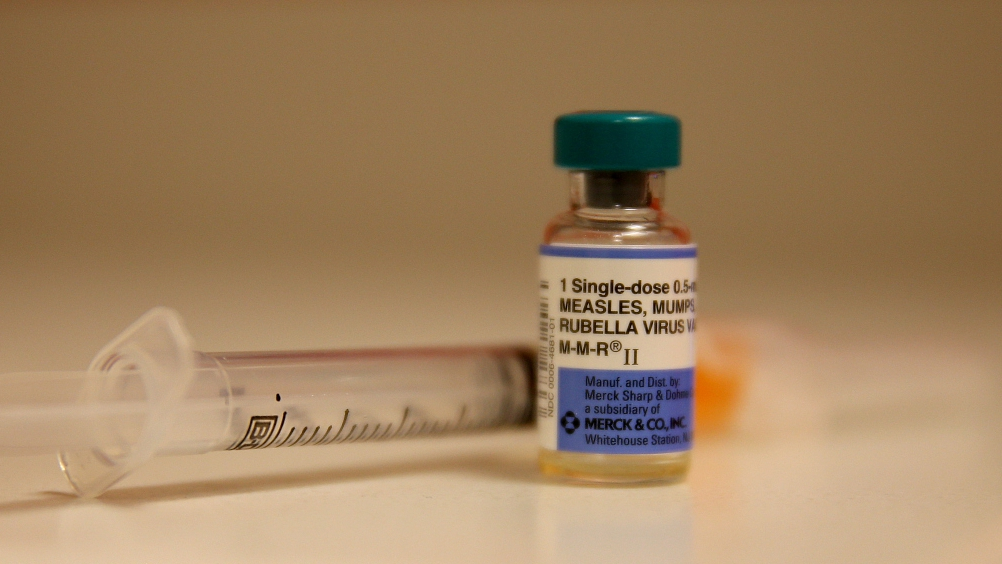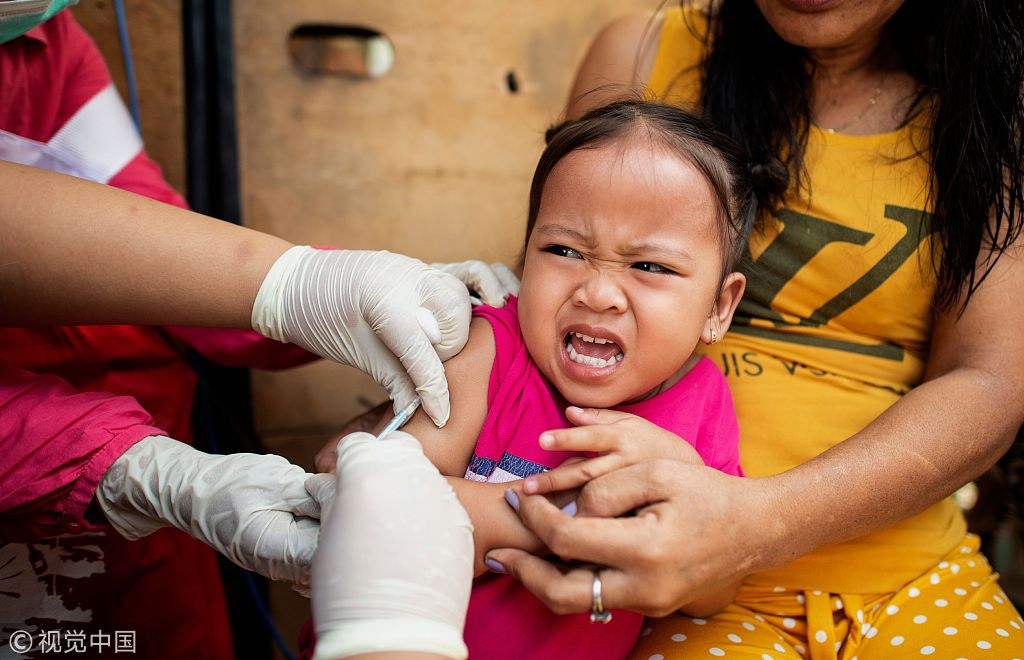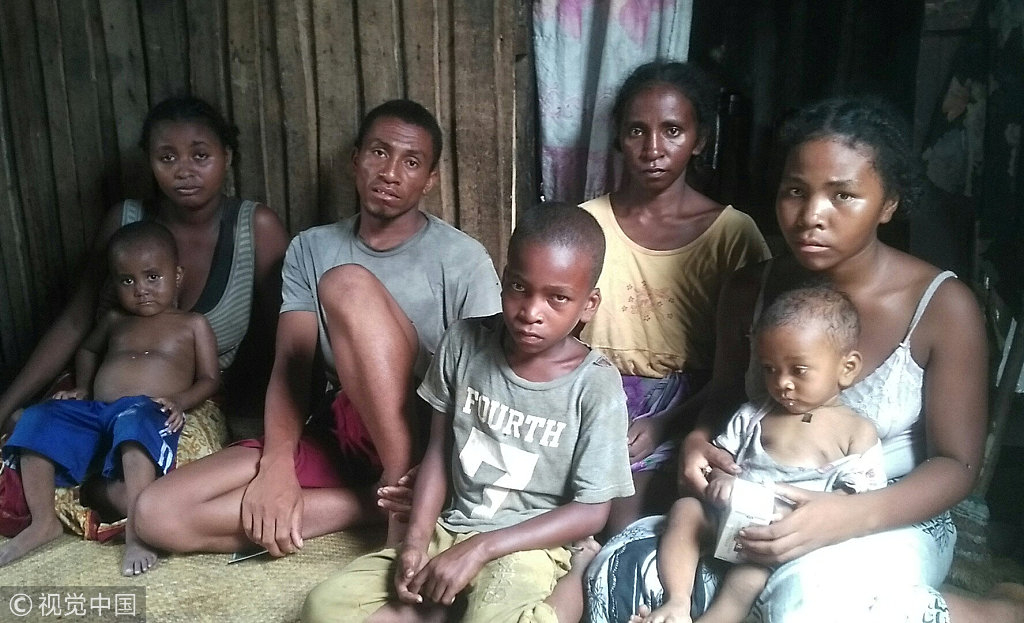
Asia Pacific
15:25, 10-Mar-2019
20 measles cases are confirmed in New Zealand's Canterbury
CGTN

Twenty measles cases have been confirmed in New Zealand's Canterbury district, and thousands of vaccines are being delivered to the health centers there as health officials warned that the number is expected to rise over the coming days and weeks.
Measles is a highly contagious viral disease that can cause complications including blindness and brain swelling and increase susceptibility to other diseases.
With Canterbury health centers running out of vaccines since the start of the outbreak in late February, 3,000 MMR vaccines had been brought by Sunday (March 10) and 18,000 more are to be delivered to the region by Wednesday.
"It can now be assumed that measles is circulating widely in our community," the Canterbury District Health Board said in a statement.
The latest outbreak came from people who were thought not fully immunized. People are considered immune if they have received two doses of the MMR vaccine, have had a measles illness previously, or were born before 1969.
"Unimmunized people who come within two meters of an infectious person, however briefly, have a 90 percent chance of contracting measles," the board said.
New Zealand's Ministry of Health said in a statement in late February that since 2012, all cases of measles in New Zealand came from travelers bringing the disease from overseas.

A growing measles outbreak in the Philippines killed at least 25 people last month, February 16, 2019. / VCG Photo
A growing measles outbreak in the Philippines killed at least 25 people last month, February 16, 2019. / VCG Photo
Deadly measles
Measles cases are on the rise globally, including in wealthy nations such as the United States and Germany, where some parents shun life-saving vaccines due to false theories suggesting links between childhood immunizations and autism.
In March 7, the International Federation of Red Cross and Red Crescent Societies (IFRC) warned that Children in the Philippines are at serious risk of a deadly measles outbreak that has already claimed the lives of 261 people, most of whom are youngsters under age five.
While on February 14, WHO also warned that at least 922 children and young adults have died of measles in Madagascar since October, despite a huge emergency vaccination program.
Even though the vaccine is highly effective, globally around 110,000 people died from measles in 2017, according to the World Health Organization (WHO). Most of them were children under the age of five.

Malagasy fisherman Dada lost three children who died of measles one week apart in Fort Dauphin, Madagascar, February 28, 2019. / VCG Photo
Malagasy fisherman Dada lost three children who died of measles one week apart in Fort Dauphin, Madagascar, February 28, 2019. / VCG Photo
Precaution of Measles
Timely measles and rubella surveillance is critical to disease control. According to the WHO, identifying and confirming suspected measles and rubella cases through surveillance allows early detection of outbreaks, analysis of on-going transmission in order to mount more effective vaccination measures, and estimation of the underlying true incidence based on the patterns in reported data.
However, many countries still have a poor surveillance system, and many people who were suspected with measles didn't seek health care or, if diagnosed, are not reported. In addition, there is a one to two month lag time in reporting.
Centers for Disease Control (CDC) of the United States recommends routine childhood immunization and the MMR vaccine for students at post-high school educational institutions without evidence of measles immunity, people who are born during or after 1957 who do not have evidence of immunity against measles, and international travelers.
Measles is one of the most contagious of all infectious diseases; approximately 9 out of 10 susceptible persons with close contact to a measles patient will develop measles.
(With input from Reuters, AFP)

SITEMAP
Copyright © 2018 CGTN. Beijing ICP prepared NO.16065310-3
Copyright © 2018 CGTN. Beijing ICP prepared NO.16065310-3